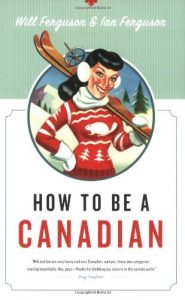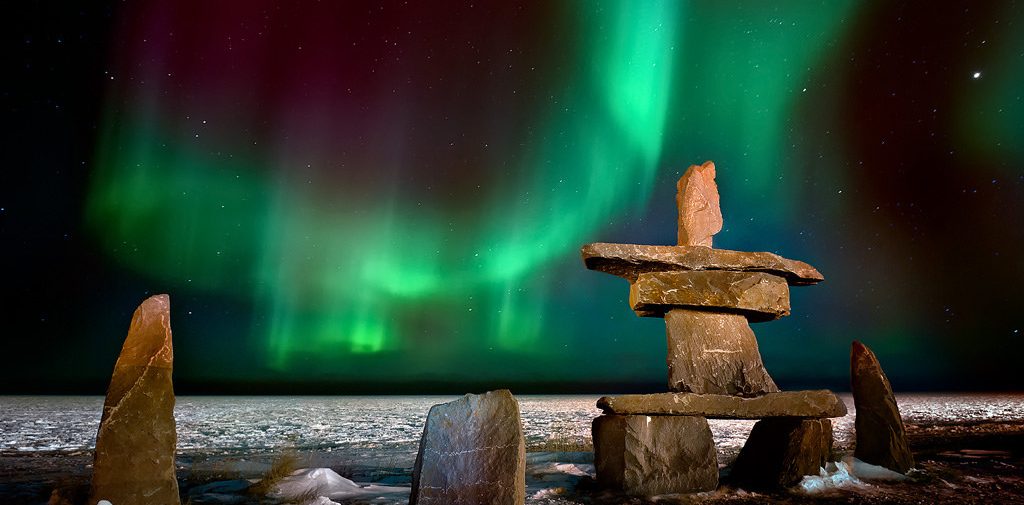Bonjour, eh?
(That means ‘Welcome to my Canadian Literature Studies Blog’ in Canadian)
I’m Charlie, a double major in English Literature and Film Studies, and one of my many guilty pleasures is laughing at Canadian stereotypes no matter how true or false. Right now you should look up how to be Canadian. I dare you. It’s pretty entertaining. And while I am proud to call myself a fan of both the Jays and poutine, I know that these stereotypes only scratch the surface of this country and this summer I have a simple goal; to further explore Canada’s interior. I (of course) mean that metaphorically – I will be doing this all from the comfort of my pajamas and with Google at my fingertips.
Canadian-isms in the media are vastly over generalized as we can see in this advertisement for a beer named after our country and other throwaway references in TV or movies.
But there’s more to Canada and this course is my opportunity to learn about the complex stories that create the ever-growing mosaic. Our first book, J. Edward Chamberlin’s If this is your Land, Where are your Stories? summarizes our course and my interest in it. We’re getting a chance to study and discuss stories and how those stories connect us all to this land.
In Stephen Marche’s article about the documentary Being Canadian he claims that to be Canadian is to be invisible when abroad, specifically in the United States, but I find this over-simplified. Canada is diverse and spread not only across our own country, but throughout other countries as well. We may not flaunt or boast about our country, but will always tell the stories. Mike Meyers is proof of this, as Marche has mentioned. Stories are what make us Canadian. Every person on this land has a story about where they came from whether it goes back to a great creator or a grandparent who came across the ocean in a ship.
For me this course is going to broaden my own connection with this country in which my experience is that of an immigrants child. I love reading something when I’ve visited the setting and experienced the actions. The setting becomes part of your home; it’s refreshing and comforting.
So let’s get started.
Works Cited
Cohen, Robert. “Being Canadian: The Movie.” Being Canadian. Grainy Pictures, 2015. Web. 13 May 2016.
I Am Canadian. Dir. Kevin Donovan. Perf. Jeff Douglas. YouTube: Vinko, 2000. Online.
Ferguson, Will. How to Be Canadian Cover. Digital image. Will Ferguson: Books. Will Ferguson, 2000. Web. 13 May 2016.
Marche, Stephen. “What It Really Means to Be Canadian.” Esquire. Hearst Communications, 18 Sept. 2015. Web. 13 May 2016.

Haha I love the video you posted, Charlie! Self-deprecation just shows how Canadians can have a light-hearted approach towards who we are.
I also major in English Lit and my parents are immigrants too. Although the Canadian identity is there, I feel like citizens of this land can have some fun with this label and not take it too seriously. It’s fluid and light nature make it so that it isn’t a suffocating name to have to adhere or live up to.
I find that because of the relatively short history of Canada after colonization, our identity is not yet set in stone, and hopefully it stays this way. Don’t you ever feel as though a country which is accepting of all cultures is one where authentic peace can be realized? I also think that maturity is found in a country where its people can poke fun at their collective identity.
Since Canada has an ever-increasing mixed population, the Canadian identity is made even more yielding. I think Canadian power lies in how we don’t feel we need to go out of our way to express who we are. Like we see in many other nations on Earth, patriotism easily becomes jingoism and humanity is, therefore, forgotten, especially in times of war.
I, too, have a story of my own and I don’t feel the need to conceal it because of its difference in cultural context. Like you mentioned above, the stories brought together to form Canada is an ongoing process and may it continue to be so.
Cheers,
Lorraine
Hello fellow English major!
I think it’s great that you brought up Canada’s short history. I’m surprised, but I haven’t actually heard that brought up in discussions about Canada’s unspecified identity. In my other Canada-focused courses I have had a lot of discussions about whether there is a single identity for our country.
However, these discussions also make me wonder if we can claim a single identity for any country. While it’s a great notion to claim that kind of cohesion, travelling Europe reveals a certain stereotype of some countries like polite British, vocal Italians, laid-back Spanish or the millions of others we could probably come up with but I also found examples to negate them.
I wonder if there’s any international students (who are brave enough) in this class who could give some insight to their perspective of Canadians and Canadian-isms?
Hey there,
Liked reading your post and looking forward to hearing more of your thoughts throughout this course. I too find Canadian stereotypes hilarious, especially because they can be so extreme, and are typically complimentary (being polite, having lots of a good coffee chain (Tim’s)).
One think I’ve often thought regarding Canadian identity in conjunction with the outside world is how it tends to be a little reductive. That is to say, for us Canadians the difference between Williams Lake, Toronto and Winnipeg is drastic. Not just geographically, but definitely socially and environmentally. The imagery of Canada being the “great white North” always gets lost on me, especially because I have yet to venture further North than Williams Lake.
Best,
Corbin
Great post Charlie!
That Molson Canadian ad is always a classic, and I don’t think it will ever get old. I would tend to agree with you about Marche’s views of what a Canadian ethnicity would look like, in that it would be very diverse. I think Marche misses the point when he writes about Canadian Identity as being invisible. Though these may be very trivial and outdated, I think the exact things that Marche lists as what make Canada visible, such as: poutine, maple syrup, and hockey, help define Canadian culture (though not universally Canadian).
Canada on an international stage has historically been a leader in foreign aid, climate change, and peace keeping. It’s because of initiatives like this I think Canadian’s receive their labels abroad as being friendly, polite, and passive aggressive; particularly in the US. Its because of Macro initiatives like this, I believe Canadians have a very visible identity.
So I guess my question to you is, when you take into consideration actions that shed light onto Canada (ie. macro level/international stage), how does that help define how Canadians are perceived abroad (micro level)? And how do you think these perceptions have changed over time?
For example, aside from the ones Marche mentions, I would say some newer/emerging identities and stereotypes of Canada are:
-Texas of the North (oil in Alberta)
-Newfie accents
-rioting over hockey
-yoga in Vancouver
Looking forward to working with you in this class.
Cheers,
Gurdeep
Meant to add this in my comment above. I think it goes well with the Molson ad.
http://www.foxradio.ca/files/CLICHES-map-637×544.jpg
Corbin – I had the same discussions in my courses. I took a Canadian Film Studies course and while we never answered the question, we spent a lot of time contemplating if there’s ever a single identity. I agree that it’s reductive – of all the people I’ve talked to no one ever mentions how massive our land is and therefore naturally how our population and land traits vary extremely. Everyone does assume that Torontonians and Vancouverites are the same. It’s really strange and actually goes into what Gurdeep was talking about.
Gurdeep – I agree that these things help define Canada, however I question whether that information only applies to certain countries with higher education levels. I would argue that each country has a completely different view of us and there are even a few that rarely hear about our actions as a country. I would want more information on international news and media outlets. I love maps that show things other than land masses. This one shows what every country leads the world in and some of it is really surprising! http://cdn2.accionpreferente.com/wp-content/uploads/2014/07/map-119.jpg